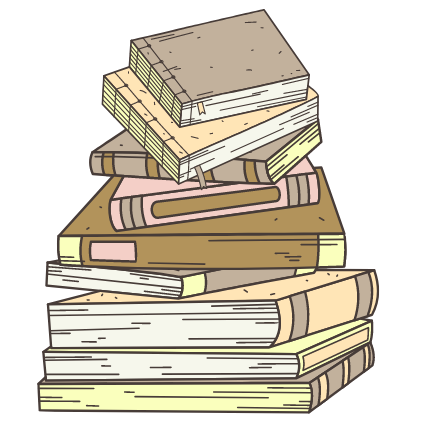
How to Start Reading Classics (and ACTUALLY enjoy them)
Hello everyone! For the past few months, I’ve become increasingly obsessed with reading classics. Frankenstein, Lord of the Flies, Phantom of the Opera, To Kill a Mockingbird . . . the list keeps getting longer.
Before this strange obsession, I had a hard time reading older books. Usually I was required to read them for school, which automatically made the experience ten times more boring. It was hard to decipher the flowery and old-fashioned language. It was a challenge to understand what was actually happening. I once read through the entirety of A Tale of Two Cities and had no clue of what was happening. I tried reading Pride and Prejudice twice, but dropped it for the same reason.
I dreaded reading classics.
However, I think it’s valuable to read older books. While there’s nothing wrong with reading other types of books, we can learn a lot from stories that have stood the test of time. Classic books have been enjoyed by generations. People wouldn’t keep reading those books if they didn’t have something of value.
It’s important to have a healthy reading diet – classics are just the vegetables. While there are tastier things to eat than vegetables (i.e cake and fluffy YA books) veggies help keep our bodies functioning.
It’s the same with classics. They can be hard to read. You will definitely enjoy some more than others. But, by reading classics, you can glean valuable lessons to help your writing skills and general understanding of life.
So, whether you’re stuck with reading a classic for school and you don’t know how you’ll get through it, or if you simply want to know how to make eating your vegetables / reading your classics easier, today I have a few tips that I hope will help.
Start Out Easy
If you aren’t a runner, you don’t want to being your running journey by signing up for a marathon. Instead, you’d take some time to gradually work up to the marathon, right? If you’re a little toddler who’s just learning to count to ten, it wouldn’t work for you to learn trigonometry right away.
I could give so many more random examples, but the point is, you usually need to start small and work your way up from there. It’s not impossible to get to a high level in something, but that takes time and practice.
It’s the same with reading. Most of us didn’t start reading Pride and Prejudice right away. We started out with something easier, like Dr. Suess.
Starting with easier classics can help you get used to the unfamiliar language and general “old-ness” of these books. Then, you can work up from there.
Start out with something easier, like:
- Little House on the Prairie by Laura Ingalls Wilder (this whole series can be a wonderful reread.)
- Black Beauty by Anna Sewell (a beautiful story for horse lovers.)
- The Secret Garden by Francis Hodgson Burnett (Another classic that you’ll love to reread.)
- Call of the Wild by Jack London (Perfect for if you’re looking for adventure.)
- Jane Eyre by Charlotte Bronte (The language in this is actually very easy to understand!)
- Anne of Green Gables by Lucy Maud Montgomery (You’ll fall in love with the aesthetic.)
- King of the Wind by Marguerite Henry (A short but wonderful read.)
- Greek Myths: A Wonder Book for Girls and Boys by Nathaniel Hawthorne (This is what got me into classics. It’s great!)
Utilize Summaries
I used to think that summaries of books were useless. Who wants to find out the spoilers before you read the book? But then, with the help of Les Misérables, I was proven wrong.
Les Misérables is as complicated as taxes. There are a million different characters who each have a million different motivations and backstories, and they are all connected through a million different ties. Victor Hugo really must have had fun writing it, but it’s a beast to read.
Now the whole reason I decided to read Les Misérables in the first place was because I loved the musical. (Correction: I was obsessed with the musical.) I listened to the soundtrack 24/7 for months. I made my brothers construct a barricade in our backyard. I figured out how to sing One Day More all by myself.
I got the book for Christmas and started reading it right away. I already knew the basics of what happened because of my obsession with the musical. This made it easier to understand what happened in the book. If I hadn’t first listened to the musical and learned who was what character and how they were related, then I would have been very confused and stuck.
All this to say, don’t be ashamed of Googling what happens in a story before you read it. Or even just watching the movie version. It can actually be quite helpful to understanding some of the harder books out there.
Stop and Understand the Words
This summer, I read Shakespeare for the first time with Romeo and Juliet. I was surprised to find that I actually quite enjoyed it, but it was definitely a reading challenge. Shakespeare’s plays were written five hundred years ago. Present day English is not the same language it was back then.
Because of all this crazy language stuff, I read Romeo and Juliet with a different approach. When I came across a word or sentence that seemed like it was written in a different language, I set down my book and Googled the unfamiliar word. Through that, I was able to semi translate 1500’s Shakespeare-speak into our more current manner of talking.
This applies to reading other classics as well. Most of them weren’t written in the same way we write and talk nowadays. A dictionary (or Google, because we are modern humans here) will be your best friend.
Fix Your Attention Span
(Now, if you really want to dive into the idea of taking breaks from social media, I did write a long blog post about that.)
It’s really no question that all the short and fast social media videos out there can mess up your attention span. You can really see the difference if you try to go from watching Instagram Reels to doing any task that requires concentration.
Yes, classics can sometimes be slow or boring. But I think part of that problem is we consume fast paced content all the time. Before reading some of these slower books, you might want to slow down your attention span.
My obsession with reading classics coincided with getting off social media. Since I spent less time scrolling, I eventually regained my attention span and that made reading classics much easier.
I’m not saying you need to get off social media completely in order to read classics, but it might be helpful to take a minute to detox your brain before reading. Do some jumping jacks or go on a walk.
Bonus – Some of my Favorite Classics
I can’t let you go without giving you a list of my favorite reads, can I? Here it goes:
- Romeo and Juliet by William Shakespeare – Get yourselves some friends who like to read Shakespeare and then you can throw around nonsensical insults all day long.
- To Kill a Mockingbird by Harper Lee- Literally one of my favorite books of all time. It’s great and if you read anything from this list, I hope it’s this book.
- Frankenstein by Mary Shelley – I can’t stop thinking about this book. It has beautiful descriptions of mountains, and also presents some more philosophical questions about humanity and good vs. evil and loneliness.
- Lord of the Flies by William Golding – This book is slightly depressing, but will make you think about humanity and civilization.
- Catcher in the Rye by J. D. Salinger – I haven’t read anything that expressed the angst of being a teenager as well as this book.
- Evangeline by Henry Wadsworth Longfellow – Technically this is a poem, but it has beautiful imagery.
And… there you have it. I hope this list of tips can help you venture into reading some fun books. Do you enjoy reading classics? What are some of your favorites?
Thanks for reading!
-Hannah
Hi! I’m Hannah, a crazy pen-wielding, jack-of-all-trades writer. I write contemporary stories with a magical (or vintage!) twist, usually featuring big families, delicious food, and a few tear jerking scenes. When I’m not writing, you could find me camping, sewing, hiking, cycling, skiing, playing violin or piano, reading, and many other “-ing” words.
